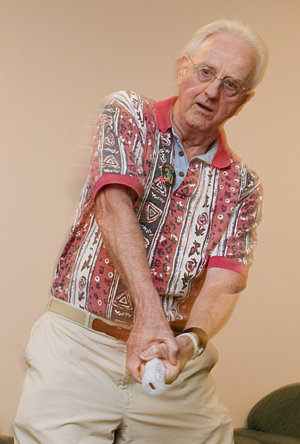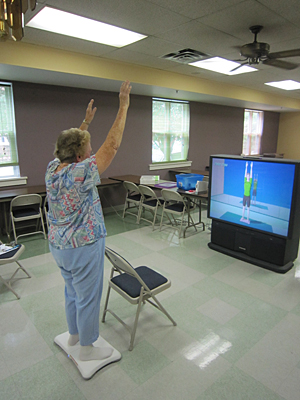

ADVERTISEMENT
- Rozovsky wins prestigious NSF Early Career Award
- UD students meet alumni, experience 'closing bell' at NYSE
- Newark Police seek assistance in identifying suspects in robbery
- Rivlin says bipartisan budget action, stronger budget rules key to reversing debt
- Stink bugs shouldn't pose problem until late summer
- Gao to honor Placido Domingo in Washington performance
- Adopt-A-Highway project keeps Lewes road clean
- WVUD's Radiothon fundraiser runs April 1-10
- W.D. Snodgrass Symposium to honor Pulitzer winner
- New guide helps cancer patients manage symptoms
- UD in the News, March 25, 2011
- For the Record, March 25, 2011
- Public opinion expert discusses world views of U.S. in Global Agenda series
- Congressional delegation, dean laud Center for Community Research and Service program
- Center for Political Communication sets symposium on politics, entertainment
- Students work to raise funds, awareness of domestic violence
- Equestrian team wins regional championship in Western riding
- Markell, Harker stress importance of agriculture to Delaware's economy
- Carol A. Ammon MBA Case Competition winners announced
- Prof presents blood-clotting studies at Gordon Research Conference
- Sexual Assault Awareness Month events, programs announced
- Stay connected with Sea Grant, CEOE e-newsletter
- A message to UD regarding the tragedy in Japan
- More News >>
- March 31-May 14: REP stages Neil Simon's 'The Good Doctor'
- April 2: Newark plans annual 'wine and dine'
- April 5: Expert perspective on U.S. health care
- April 5: Comedian Ace Guillen to visit Scrounge
- April 6, May 4: School of Nursing sponsors research lecture series
- April 6-May 4: Confucius Institute presents Chinese Film Series on Wednesdays
- April 6: IPCC's Pachauri to discuss sustainable development in DENIN Dialogue Series
- April 7: 'WVUDstock' radiothon concert announced
- April 8: English Language Institute presents 'Arts in Translation'
- April 9: Green and Healthy Living Expo planned at The Bob
- April 9: Center for Political Communication to host Onion editor
- April 10: Alumni Easter Egg-stravaganza planned
- April 11: CDS session to focus on visual assistive technologies
- April 12: T.J. Stiles to speak at UDLA annual dinner
- April 15, 16: Annual UD push lawnmower tune-up scheduled
- April 15, 16: Master Players series presents iMusic 4, China Magpie
- April 15, 16: Delaware Symphony, UD chorus to perform Mahler work
- April 18: Former NFL Coach Bill Cowher featured in UD Speaks
- April 21-24: Sesame Street Live brings Elmo and friends to The Bob
- April 30: Save the date for Ag Day 2011 at UD
- April 30: Symposium to consider 'Frontiers at the Chemistry-Biology Interface'
- April 30-May 1: Relay for Life set at Delaware Field House
- May 4: Delaware Membrane Protein Symposium announced
- May 5: Northwestern University's Leon Keer to deliver Kerr lecture
- May 7: Women's volleyball team to host second annual Spring Fling
- Through May 3: SPPA announces speakers for 10th annual lecture series
- Through May 4: Global Agenda sees U.S. through others' eyes; World Bank president to speak
- Through May 4: 'Research on Race, Ethnicity, Culture' topic of series
- Through May 9: Black American Studies announces lecture series
- Through May 11: 'Challenges in Jewish Culture' lecture series announced
- Through May 11: Area Studies research featured in speaker series
- Through June 5: 'Andy Warhol: Behind the Camera' on view in Old College Gallery
- Through July 15: 'Bodyscapes' on view at Mechanical Hall Gallery
- More What's Happening >>
- UD calendar >>
- Middle States evaluation team on campus April 5
- Phipps named HR Liaison of the Quarter
- Senior wins iPad for participating in assessment study
- April 19: Procurement Services schedules information sessions
- UD Bookstore announces spring break hours
- HealthyU Wellness Program encourages employees to 'Step into Spring'
- April 8-29: Faculty roundtable series considers student engagement
- GRE is changing; learn more at April 15 info session
- April 30: UD Evening with Blue Rocks set for employees
- Morris Library to be open 24/7 during final exams
- More Campus FYI >>
2:50 p.m., Sept. 15, 2010----Video games have been blamed for weight gain and lack of fitness in children and adolescents, but Beth Orsega-Smith is finding that the right games used the right way can actually improve health and well-being. Her target population, however, is about 60 years older than the typical video game player.
An associate professor in the Department of Behavioral Health and Nutrition at the University of Delaware, Orsega-Smith is conducting research on the use of “exergames” -- games that require physical exertion as an input to gain feedback from the system -- with older adults.
With assistance from undergraduate health behavior science majors, Orsega-Smith is exploring the use of the Nintendo Wii gaming system to promote not only physical fitness but also mental health. During the past two summers, four students have been involved in the project through UD's Service Learning Program.
A study implemented during summer 2009 by Kerrigan Smith and Christine Kukich at the Newark Senior Center and the Howard Weston Senior Center in New Castle, Del., compared the caloric expenditure of playing various Wii sports games -- bowling, tennis, and baseball -- for 30 minutes.
The calories burned ranged from a low of 18-89 for team bowling to a high of 22-114 for baseball.
“If we assume an average of about 50 calories for half an hour three times a week,” Orsega-Smith says, “that's 7,800 calories a year. Participating in these activities may not be enough to combat chronic disease, but it might slow down the 'middle-age spread' that occurs gradually with age. If we can get people to do something, it's better than doing nothing.”
A second study, carried out during summer 2010 by Kelley Slavish and Laura Gimbutas at Howard Weston and the Claymore Center in Wilmington, Del., implemented the “balance games” on the Nintendo Wii Fit Plus to explore the effects of interactive balance technology on older adults considered at risk for falls.
The results of functional fitness tests done before and after the twice-weekly four-week program showed a trend of improved balance. Participants also shared their own perceptions of the effects of the program, including the ability to maintain independence, increased self-esteem and confidence, increased awareness of body movements, and help with maintaining cognitive function.
“I like the fact that I'm being trained to help myself,” said one woman.
Beyond the potential physical benefits of using the Wii system are the psychosocial benefits. “This is especially the case when the Wii systems are placed in community centers for seniors to use,” Orsega-Smith points out. “Older adults may benefit from the social support, encouragement, and camaraderie in playing the game in a group setting. Just the simple 'great shot' or 'that was a great play' along with a laugh or two can positively impact an older adult psychological state.”
Comments from participants support these assumptions.
“It was a great way for some of us to get to know each other by talking about the things we're good at and the ones we're not,” said one woman.
“We would never have had the confidence to do Wii bowling or Wii Fit on our own,” said another. “We needed help getting started.”
Orsega-Smith also sees signs that the increases in activity and fitness associated with the use of exergames are sustainable in a group center. One participant said, “If they offer this again, I'll do it again.”
Another positive social outcome is the potential for seniors to meet the younger generation on a more level playing field. “This shows older adults that they can learn new technology,” Orsega-Smith says, “and it may spur more interaction with their grandchildren.”
Although the studies done to date have been carried out on relatively small groups of subjects for short periods of time, people are paying attention to Orsega-Smith's findings.
After she presented a paper on the work at a national conference earlier this year, the American College of Sports Medicine (ACSM) issued a press release highlighting her findings.
More recently, she was invited to author an “Active Voice” column in Sports Medicine Bulletin, a weekly news and information source from ACSM. Titled “Nintendo's Wii and Senior Adults-What Can We Learn?” the piece highlights Orega-Smith's ongoing research and ends with a question:
“So if older adults gain a sense of accomplishment when successfully playing the Wii games, expend a few calories, and may have positive social interactions when playing with others, would it not be worth it to have Wii's available in community and senior centers for older adults to play?”
Article by Diane Kukich




